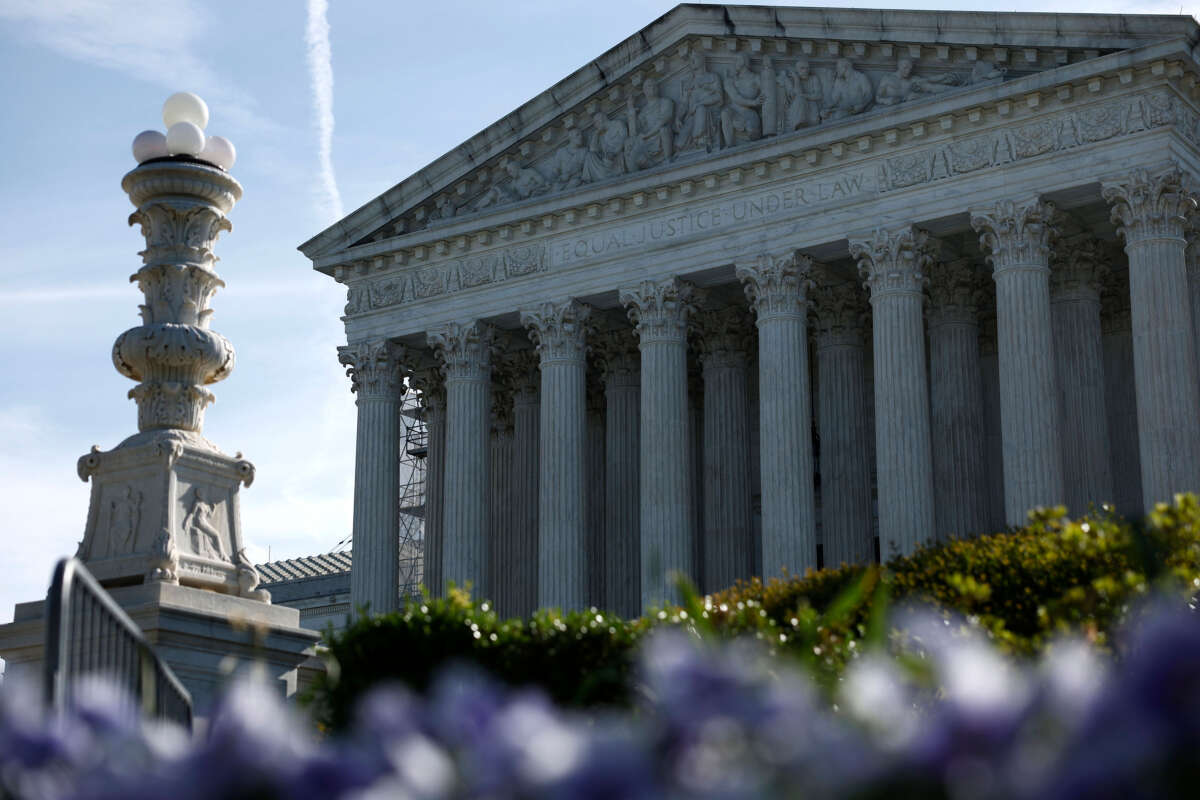Support justice-driven, accurate and transparent news — make a quick donation to Truthout today!
The U.S. Supreme Court has agreed to hear a challenge to a Tennessee ban on gender-affirming care for transgender youth, the first time the Court has agreed to hear such a case, which will likely determine the legality of similar bans that affect countless trans kids throughout the U.S.
For a case to move forward, just four Supreme Court justices out of the nine on the bench have to agree to hear a writ of certiorari argument from a petitioner. In this case, the Biden administration has decided to intervene, arguing on behalf of trans youth and their families and against the state’s ban, which is being defended by Tennessee Attorney General Jonathan Skrmetti.
The case, United States v. Skrmetti, was included on the Court’s order list on Monday, with no indication of which justices, if any, were opposed to hearing it before the Court. Due to the Court’s 6-3 conservative majority, the agreement to the writ means that at least one conservative bloc member of the Court, possibly more, felt compelled to hear the case.
The case will be argued in front of the Court sometime during its next term, which begins in October.
Tennessee’s law regulating gender-affirming care for transgender minors bars any physician in the state from prescribing puberty blockers or hormone therapy, and bans surgery outright — forms of treatment that are often described as life-saving for those who receive them.
In addition to the Biden administration’s appeal, trans youth and their families from Tennessee previously submitted a writ to the Supreme Court, demanding that the state law be blocked as it violates their rights to obtain health care that dozens of medical organizations and health experts say is both safe and effective. Included in that request was a statement from a then-15-year-old transgender teen, who expressed “how important this care is for tens of thousands of transgender youth” like them.
“It scares me to think about losing the medication that I need, and if this law continues, my family may have to leave Tennessee ― the place I have lived and loved my entire life,” the teen said in their statement, which was submitted last year.
The law was struck down by a federal district judge. However, the Sixth Circuit Court of Appeals overruled that finding in a split decision last September, with two out of three judges on the panel favoring the state’s ban.
Twenty-five states in the U.S. currently have a law or policy on the books that bans gender-affirming care for trans youth in some way. Many of these state bans are currently blocked by judicial order or are facing legal challenges. The ultimate ruling from the Supreme Court could determine whether those blocks remain in place or if it is legal for states to bar health services for trans youth.
“The future of countless transgender youth in this and future generations rests on this Court adhering to the facts, the Constitution and its own modern precedent,” said Chase Strangio, a trans rights advocate and lawyer for the American Civil Liberties Union (ACLU).
In a statement provided to Truthout, Sean Ebony Coleman, executive director of Destination Tomorrow, a national LGBTQ organization, said that “the Supreme Court’s decision to hear arguments against Tennessee’s law banning medical care for Transgender minors is a pivotal step in protecting our youth.”
“Denying gender-affirming care, which is supported by leading medical associations, is not only medically unsound but also a violation of fundamental human rights,” said Coleman, who added that the issue “is about the basic human right to live authentically and access life-saving services.”
A terrifying moment. We appeal for your support.
In the last weeks, we have witnessed an authoritarian assault on communities in Minnesota and across the nation.
The need for truthful, grassroots reporting is urgent at this cataclysmic historical moment. Yet, Trump-aligned billionaires and other allies have taken over many legacy media outlets — the culmination of a decades-long campaign to place control of the narrative into the hands of the political right.
We refuse to let Trump’s blatant propaganda machine go unchecked. Untethered to corporate ownership or advertisers, Truthout remains fearless in our reporting and our determination to use journalism as a tool for justice.
But we need your help just to fund our basic expenses. Over 80 percent of Truthout’s funding comes from small individual donations from our community of readers, and over a third of our total budget is supported by recurring monthly donors.
Truthout’s fundraiser ended last night, and we fell just short of our goal. But your support still matters immensely. Whether you can make a small monthly donation or a larger one-time gift, Truthout only works with your help.
